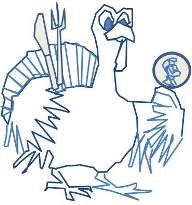|
|
Getting somewhere requires effort, it takes
faith to push on, it's easy to screw up,
|
|
Friday, December 9, 2011
Things to consider in understanding bible verses There is a stuffy, academic and really difficult to understand science of interpreting the bible
that they call “Hermeneutics”
Do we really have to know this stuff to get value from those words written in the
sacred books.
I
was reading a review on a book called “Discovering Biblical Equality” and the person provided a list of what the author considered base principles for interpreting bible verses. These were;
These are
1. literal or figurative
meaning;
2. prescriptive
or descriptive texts;
3.
individual, collective and universal references;
4. peripheral versus central doctrines;
5. fragmentary versus canonical interpretations; and
6. the situation of those being addressed or represented.
Don’t they feel like mumbo jumbo and vastly
complex? They are however good guidelines if we can decipher what they are trying to say!
Let’s take a look at each one quickly and try and make out
their requirements.
1. literal
or figurative meaning;
Wikipedia says the following “Literal language refers to words that do not deviate
from their defined meaning. Figurative language refers to words, and groups of words, that exaggerate or alter the usual meanings
of the component words. Figurative language may involve analogy to similar concepts or other contexts, and may involve exaggerations.”
So we need to understand
that for example “1 Peter 1:24 For, “All people are like grass, and all their glory
is like the flowers of the field; the grass withers and the flowers fall,…” is not to be taken literally.
So the basic rule
is we need to take verses literally unless they have a context that says otherwise.
2. prescriptive or descriptive texts;
Does the text just describe something or is
it a command or guideline. We know in everyday life we break our communications into these groupings, the bible does too.
One area I find often
gets taken in an incorrect way is the wisdom writings of the bible, Ecclesiastes and proverbs. These are
written to give general knowledge of general truths. Following them is advisable as a general rule, but to consider that they
prescribe something that will happen or always happens in a specific way is incorrect. I think of that old saying “Spare
the rod and spoil the child”. The intent is not to have us hit our kids, but that we should discipline them if
they are not to grow up in the wrong way.
Wisdom texts are the most difficult to interpret with this criteria of “prescriptive or descriptive”
but even here we need to understand into which category the words fall.
3. individual, collective and universal references;
This refers to the
fact that sometimes the person is referring to something that is their opinion, the opinion of their group, or Gods.
Jesus describes
a universal reference when he says “John 14:10 Don’t you believe that I am in the Father,
and that the Father is in me? The words I say to you I do not speak on my own authority. Rather, it is the Father, living
in me, who is doing his work.” Jesus is saying God speaks though him.
A hint we need to look for individual
language is when for example when we see words like “I say this as a concession, not as a command.
I wish that all of you were as I am.” 1 Cor 7:6.
4. Peripheral versus central doctrines;
In the bible there are many beliefs, some
are central and strongly re-emphasised throughout the bible, others are less prominent. Those that are strong central need
to be given prominence over those that are not.
5. fragmentary versus canonical interpretations;
This aspect is looking at peoples comments about the texts. When we
read a number of different interpretations, we need to give more weight to the ones that show agreement and less to those
who seem to diverge. However, this must be done with sensibility. For example, the nativity belief that Jesus was born in
a stable is unsubstantiated in the bible, yet many people interpret the usage of a manger and shepherd to signify this
as a likely aspect. Those who know the Eastern context and hebrew of the words would differ in this belief.
6. the situation of those being addressed
or represented.
Let’s know what is being talked about. In that long discussion of food and idols, in 1 Cor 8, the subject is not
actually food and idols, it is about respecting ones peers in Christ. It is easy to misunderstand that, if the context is
not clearly understood.
It says
“So then,
about eating food sacrificed to idols: We know that “An idol is nothing at all in the world” and that “There
is no God but one.” For even if there are so-called gods, whether in heaven or on earth (as indeed there are many “gods”
and many “lords”), yet for us there is but one God, the Father, from whom all things came and for whom we live;
and there is but one Lord, Jesus Christ, through whom all things came and through whom we live.
But not everyone possesses this knowledge. Some
people are still so accustomed to idols that when they eat sacrificial food they think of it as having been sacrificed to
a god, and since their conscience is weak, it is defiled. But food does not bring us near to God; we are no worse if we do
not eat, and no better if we do.
Be careful, however, that the exercise of your rights does not become a stumbling block to the weak. For
if someone with a weak conscience sees you, with all your knowledge, eating in an idol’s temple, won’t that person
be emboldened to eat what is sacrificed to idols? So this weak brother or sister, for whom Christ died, is destroyed by your
knowledge. When you sin against them in this way and wound their weak conscience, you sin against Christ. Therefore, if what
I eat causes my brother or sister to fall into sin, I will never eat meat again, so that I will not cause them to fall.”
This is the last of the guidelines.
So today as we read our bibles, let us make sure we know what
we are reading by applying these ways of checking up on ourselves as we read the words.
Have a great day!
Fri, December 9, 2011 | link
Thursday, December 8, 2011
Driving on slippery roads Canada and many Northern countries spend
a good part of their year in cold snow and ice covered conditions. This is a normal part of their biannual
cycle. Summer gives way to winter snow, ice and the influences of cold conditions.
That’s when driving starts to become more of a skill! Almost
anyone can drive with relative safety during the warm summer months, but the roads change as the season does and in winter
become fogged, iced and snow covered.
Our lives have seasons as well!
Times can be simple and less problematic, but other
times will be times of pain, struggle and hard work. None of these times, either the good or bad are what
we would consider definitive in guiding our lives. They are simply the road on which we are forced to walk or drive.
They are the mode in which
we are to experience the journey. Like the man who drives down the road, we are not able to change the circumstances into
which we are about to enter, but we can choose the course through these circumstances, as well as change the way we will deal
with the conditions we expect we will be encountering.
It is good to plan ahead!
In winter, we carry blankets, a candle, flashlights, extra gloves and perhaps some
chocolate as emergency measures.
We are planning for what we hope will not occur! Similarly, in life we
need to plan for the emergencies we know we may encounter.
Reading our bibles daily as Christians is a planning for emergencies activity. It provides
us with the ability to prepare for the circumstances that may come our way. Some we may know are coming, the way the driver
knows by looking at a map where the road is going and whether the roads that will be encountered, will be asphalt or dirt.
This then gives us the ability to re-plan, if the course seems to be heading into potential disaster.
Similarly reading our bibles enables us to
see how to deal with our life’s course and re-direct our lives into safer paths.
No matter what we do, the time comes when the snow comes down,
the roads become icy and we have to take each part of our drive carefully by considering the immediate conditions, taking
extreme care and not doing anything silly because the cost is too great.
In life, these times come as well!
Unexpectantly
we fall into situations which may have tough consequences, where our decisions appear to be crucial and our
lives become tortured by decision making.
This is the time to take extreme care!
Drivers use GPS’s and follow road markings and signs. Christians
pray, listen to God and follow Holy Spirits guidance. It’s the only way through!
Sometimes when times are tough it’s
nice to have a companion in our car with us, isn’t it?
Similarly, in life it’s good to have other Christians around who
can understand and help us.
So today, I want to look out for those that are hurting and try to help! Let’s be good companions, if that is
what is needed!
If
it is us who need the help, let’s not fear turning to God and Christian friends for help!
Have a great day!
Thu, December 8, 2011 | link
Wednesday, December 7, 2011
How much help is too much? Help is a strange commodity in that often it is very welcome, yet at other
times it is accepted begrudgingly and at yet other times it is even met with resistance.
In
the first of these, it is a positive experience, in the second a mixed experience and in the last a negative experience, so
how do we know what to do in situations?
In Canada in winter, when we get to 15C below freezing there is a great risk to the lives of homeless
people on the streets. Then the law kicks in and people are forcibly taken into shelters. This is a case of necessary
help (I believe) even where it is not often respected by many of these people who fear the indoors of these shelters. The
informal volunteer networks in the city provide food and meals and blankets to these people as part of an “out-of-the-cold”
program. People who know the warm and comfort of these supplies and how much they are needed, gather and provide them to those
who often don’t ask for them.
This help while not always respected and is measured by the number of lives it saves each year.
A solid measure of success for those providing the services we would tend to agree, right?
If saving a life is a measure of
how we can provide help to those who may not want it, how can we get annoyed with Christians who want to tell us or others
about Jesus?
Fundamentally, the
reason they are doing so is two fold:
Firstly, they are excited by their own experiences and the joy , comfort
and warmth they experience in their relationship with God. This encourages them to want to have this for others.
Secondly,
they see that a person who rejects God is not only going to die, but they are going to a fate of eternal negative pain which
is far worse than death. This means they want desperately to save the people around them from this demise.
Is this so wrong? Even if
others don’t always want the help, is it so wrong to attempt to help?
In Toronto every year, some people hide away from the police and helpers
in bus stops, behind makeshift hideaways and in other areas as the penetrating cold settles over the city. Every year some
poor citizen comes upon a human popsicle where a homeless person achieved their wish for “freedom”. Great sadness
is the outcome in these situations as the helpers realize that despite their effort one determined soul killed themselves.
In the attempt to save
people from Hell, there is more of a challenge for Christian helpers as only those who CHOOSE
to be saved get themselves saved. The fatality rate is far, far higher! The sadness is much, much greater!
So,
if you are a Christian, let's go out and give help, even when it is not always respected. If you aren’t
a Christian, please understand why us crazy Christians want to explain what we believe! It’s really because we love
you deeply!Have a great day!
Wed, December 7, 2011 | link
Tuesday, December 6, 2011
Dead Sea dies for lack of water, something that some of us know about, right? It is predicted that the Dead sea will
cease to exist as a sea by around 2050A.D.
With Israel,
Jordan, Syria all needing it’s water, this will be disaster. Not only because the water will dry up, but because
the lack of water will fuel aggression and this within the already turbulent political and religious climate, will be like
dropping a lit candle into a haystack.
Until recently it was not known if the Dead Sea had been in the same situation in the past and now they think it occurred about 120 000
years ago. The water flowing in seems to dry up in hot periods and then the sea returns when the glacial periods return.
This time
it is different! The demise is being accelerated by the need for water in cities along the route
that feeds the Dead Sea.
For those who are not knowing what the Dead Sea is, it is a salt lake that is between Israel on the east
and Jordan on the west. It’s shores are about 1388ft below sea level and it has 33.7% salt in its water, making it one
of the saltiest naturally occurring waters on earth. It is fed by the Jordan river which is the only source of water, but
it has no outflow, causing the salt brought in by the river to accumulate.
Higher up the Jordan river is the Sea of Galilee, well
know by those of us that read the bible as Jesus spent considerable times on it and it’s shores. This is a vibrant life
filled lake that is in stark contrast to the more southern lifeless Dead Sea. The water flows in and out of the Sea of Galilee,
unlike the Dead Sea.
The geography and the contrast of these two lakes is almost a living parable of what happens in our
Christian lives as we allow the living water to flow through us, or flow into us and not out.
What am I talking about?
I am talking about what Jesus said to a woman many years ago as mentioned
by John, that great friend of Jesus in chapter 4 verse 10
Jesus answered her, “If you knew the gift of God and
who it is that asks you for a drink, you would have asked him and he would have given you living water.”
The woman replies
John 4:11 “Sir,” the woman said, “you have nothing to draw with and the well is deep. Where can you get this
living water?
He follows
this up later saying, John 7:38 Whoever believes in me, as Scripture has said, rivers of living
water will flow from within them.”
And then to link this to our discussion of the Dead Sea, the bible also says in a prophecy about the end
times in Zechariah 14:8 On that day living water will flow out from Jerusalem,
half of it east to the Dead Sea and half of it west to the Mediterranean Sea, in summer and in winter.
And then it points out
that The LORD will be king over the whole earth. On that day there will be one LORD, and his
name the only name.
It is clear from these references that the Dead Sea is used as an example of death and dying. Jesus refers to himself
as the living water and anyone from the region where water is so precious would immediately think of the wonderful flowing
Jordan river and the magnificent Sea of Galilee. (I know to those of us who are blessed with bigger lakes and more water
such as we find here in Canada, we don’t quite get this, but imagine how these people feel)
Jesus therefore,
was linking himself with the giving of life.
The prophecy clearly shows a rejuvenation of the Dead Sea when Jesus is King.
Similarly, when we are
allowing Jesus to flow in our lives, we have life.
Unfortunately, some of us know Jesus, accept him, but don’t allow God’s
spirit to flow freely from us. So instead of being like the Sea of Galilee, we become like the Dead Sea and
shrivel up and have a living death.
Can I suggest that to fully experience life we have to let God’s Spirit flow into us and then
out through us?
How
about we letting that happen today?
Tue, December 6, 2011 | link
Monday, December 5, 2011
Does God still intervene on people’s behalf? Often people ask if God still does things.
Then,
when they hear the story they frown and say, “but that is not a miracle, it’s just a series of co-incidences”.
Is it?
Have we ever considered the only way God can maintain a true free will in
humans, is to make sure we do not get conclusive proof he exists. Our free will would be pushed into acceptance,
if total incontrovertible proof of God’s existence was provided. God even says we need to come to Him by faith.
I
love those “co-incidences” that occur as a result of prayer.
Here is one that happened yesterday!
Walking out of a church service,
I see a note on the door indicating a man needs a queen size bed and dresser. I chat to the pastor and find out his wife got
the request the night before over the phone. He meant to tell the congregation but forgot (co-incidence 1).
Now I run a small group
mission church from our home on Sundays where we service our local community in love (see www.SCGcelebrate.com) and we were meeting that afternoon, (co-incidence 2). Normally, I broadcast the meeting over the internet
and allow people to join remotely. This week however our internet router was damaged by brown outs (co-incidence 3).
This mean one of our technology savvy guys drove the 30 odd minutes to be at the service in person (co-incidence 4)
as he normally attends remotely.
The service progressed and the need was put out. We got sufficient money to meet this need and allocated some to fit
the need as well as another for a family that needs a clothes washer. We prayed that God would help us provide for that man.
Before the end of the meeting the technology savvy guy had used his mobile phone to find a bed being offered on the internet
in the local area(coincidence 5). He called to find out and it happened to be a queen size bed and dresser(co-incidence
6) and the person was willing to accept what we would offer but we had to pick it up immediately(co-incidence
7) !
Now,
this week my wife and I travelled separately so (co-incidence 8) we just happened to have a van with tow
hitch and a trailer that we could use (co-incidence 9). We also just happened to have 5 wonderful loving
young people at our meeting who were willing to organize to give up their time (co-incidence 10) to assist.
We called the man and
asked if it was a good time to bring it over and it was (co-incidence 11), retrieved the bed and dresser
having paid for it and delivered it to this man, joyful we could serve our lord and the community this way.
Now, those can
all be considered co-incidence, but let me say the Birchdale Pastor and his wife Lana started this all off when they prayed
for help in meeting the need.
We are all is some small way a part in God’s plan.
People can mock us for believing
in our Father God, but when these co-incidences occur day in and day out, can you blame us for our love of God?
Hey, I hope you will have some
Godly co-incidences today!
Mon, December 5, 2011 | link
|
|
If you want to see a short blog describing a perspective on what I believe click here
 |
Rift in Evil
By Ken
X Briggs - Published: September, 2010
- Format: Perfect Bound Softcover(B/W)
- Pages: 208
Size:
6x9 - ISBN: 9781450250894
Available from Barnes and Noble, Amazon, iUniverse. |
Credit cards are acceptable on sites having Ken's books: 
:)
 |
 |
Click
on XML Click here =>  to be told of new blogs
| Ken's book covers are displayed below. . . | |  This
suspense thriller centers on Kiara, a beautiful young woman pursued by a murderous group of people, who relentlessly and ruthlessly
hunt her and her sisters. Kiara has no idea why she is being targeted! When Kiara and her family turn to the law for help,
this fails. Her pursuers’ powers reach deeply into the political and law enforcement world. Family support for her dwindles
when they too have to flee her pursuers. Can Kiara escape the clutches of both the law and dishonest big business? With the
media broadcasting that Kiara and friends are dangerous and subversive, can Kiara clear her name and bring her pursuers to
justice?
| | | | | To purchase Kiara's Pursuer ebook
@ $1.99 kindle version click here, To contact the author contact Author@KenXBriggs.com | | | | | | | |  The town of Zinaville is dropped into a spiral of evil causing a young man and a beautiful but abused woman
to launch into an investigation that unveils an evil conspiracy. The town of Zinaville is dropped into a spiral of evil causing a young man and a beautiful but abused woman
to launch into an investigation that unveils an evil conspiracy. A horrific mining accident results in Joshua
Robyn's father being killed. Joshua struggles both with himself and his townsfolk as he tries to make sense of an incomprehensible
situation. Is it an accident or a murder? Why is there a seeming link to evil? Why is his work environment suddenly threatening?
What is the conspiracy about and what are they trying to do? As action moves dramatically from exotic African grasslands to
the heart of North America's cities, the plot unfolds and the pace quickens. Will there be time? Why is a beautiful abused
young woman in the center of this plot? Evil tendrils tighten on their lives and the interplay between the visible
and invisible world shows opposing forces at work. Will there be a rift in evil? Will they be able to stop the
evil in time? | | - Published: September, 2010
- Format: Perfect
Bound Softcover(B/W)
- Pages: 208
Size: 6x9 - ISBN: 9781450250894
Available
from Barnes and Noble, Amazon, iUniverse. Chapters | | | | |

| Frugal Eating Advice |

|
| Good advice for students living on limited $'s. Click on the image! |
May you be blessed today!
 |
|

